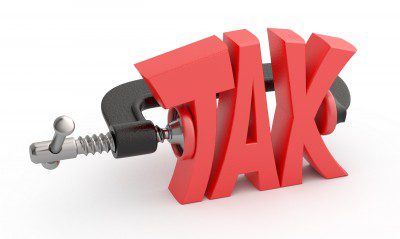Lighting tax rebates, deductions, and credits are financial incentives that help businesses pay for energy-efficient lighting upgrades while reducing operating costs and environmental impact.
When you understand how these programs work—utility rebates, federal tax deductions like Section 179D and EPAct, lamp-specific incentives such as T8 credits, and state and local programs—you can dramatically improve project ROI, shorten payback periods, and turn a “nice-to-have” upgrade into a must-do investment.
In this article, we’ll walk through the major types of incentives, how they work, where to find them, what it takes to qualify, and how Relumination helps you capture every dollar available while you upgrade to high-performance LED or other efficient lighting systems.
Why Lighting Incentives Matter
Lighting is one of the most critical parts of a business or organization. Employees can’t work, customers can’t consume, and schools and medical facilities are crippled without it.
At the same time, lighting is one of the largest and most controllable energy loads in a building.
- Depending on the type of business you operate, lighting can account for 20% to 50% of your energy consumption.
- Lighting costs can account for as much as 40 percent of business electric bills, which makes finding eco-friendly lighting a high priority for businesses that are looking to reduce their energy expenses.
That’s why lighting efficiency has its advantages. Your organization can save significant amounts of money by upgrading and taking advantage of available lighting rebates and tax credits.
And, because the energy-efficient lighting industry is always improving, lighting can provide some of your highest return on investment rates.
Relumination specializes in helping commercial and industrial businesses reduce overhead costs, conserve electricity, minimize facility management expenses, and lower their environmental impact. Incentives are a big part of how we do that.
What are The Main Types of Financial Incentives for Lighting?
There are three broad buckets of financial help available when you upgrade your lighting:
- Utility rebates and programs
- Federal tax deductions and credits (like Section 179D and EPAct-related provisions)
- State and local incentives, including T8 programs and other targeted credits
Let’s take each in turn.
Utility Rebates and Programs
A few years ago, “going green” was all the rage, if sometimes only in theory. Businesses across the United States made a point to sell themselves on how eco-friendly they and their products were. Today, many utilities and agencies back that up with real cash incentives.
Always check with your utility company to see what type of money-saving tools they offer. Programs aren’t limited to simple rebates and often include:
- Prescriptive and custom rebates for qualifying fixtures and controls
- Energy-efficient financing
- Light bulb discounts and lamp exchanges
- Retrofit incentives and new construction design savings
- Free or low-cost lighting audits
Many utilities offer a free lighting audit. This can be a great way to quickly learn:
- Which existing lights are hogging your energy
- The optimal layout of lights to maximize visibility and save money
- The estimated ROI of adding eco-friendly business lighting
- Proposed timelines and next steps
Your utility company may also have rebate information that they can provide you free of charge.
National tools to find utility and state programs
Several national resources help you identify incentives:
- ENERGY STAR partners often sponsor rebates, sales tax exemptions or credits, and recycling incentives. You can use their Special Offer/Rebate Finder to see what offers are available in your area.
- The U.S. Department of Energy allows you to search for rebates and incentives that support energy efficiency by state, and maintains up-to-date lists of nationwide programs for both residential and commercial consumers.
- The Database of State Incentives for Renewables and Efficiency (DSIRE) offers a clearinghouse of rebates, grants, and initiatives for businesses and individuals. DSIRE lets you sort by sector so you only see industrial or commercial savings opportunities.
Because utilities and states are constantly updating their programs, these tools make it much easier to see what’s on the table for your project.
Federal Tax Deductions: Section 179D and EPAct
On top of what your local utility offers, the federal government has long supported energy-efficient building upgrades through Section 179D and related provisions under the Energy Policy Act (EPAct).
What Section 179D does
To encourage energy efficiency among commercial property owners, the IRS created the Energy Efficient Commercial Buildings Deduction, commonly referred to as Section 179D, in the Energy Policy Act of 2005.
In its classic form, Section 179D:
- Provides a one-time deduction of up to $1.80 per square foot for qualifying energy-efficient improvements.
- Divides that deduction across three major building systems:
- Interior lighting
- HVAC and hot water systems
- The building envelope (walls, roof, etc.)
Historically, the IRS has provided a credit of up to $0.60 per square foot for lighting, with the remaining $1.20 per square foot available for HVAC and envelope measures.
In many structures, lighting is often the easiest and least costly upgrade to make, which is why it’s frequently the first place to look.
Important note: Specific deduction amounts and rules change over time. The examples in this article describe how the program has traditionally worked. Always have your tax professional confirm current rates and requirements before you file.
Energy savings thresholds and ASHRAE standards
To qualify, your project must demonstrate energy savings compared to a baseline building that meets certain ASHRAE 90.1 standards (for many years, this was the 2001 version):
- Full 179D deductions were designed for projects that achieve a 50% reduction in total annual energy and power costs for lighting, HVAC, and hot water systems.
- Under “interim lighting rules” and later guidance, lighting-only projects could qualify for partial deductions on a sliding scale, based on lighting power density (LPD) reduction and controls:
- Up to $0.60 per square foot for lighting when LPD is reduced by around 40% (or 50% for warehouses) compared to the baseline.
- $0.30 per square foot for projects achieving at least a 25% reduction in LPD and meeting additional controls and light-level requirements.
Again, exact thresholds and amounts can change as the law is updated, but the core idea remains: the deeper your energy savings, the larger your deduction.
Eligible buildings and who can claim the deduction
Section 179D historically applies to:
- New construction and retrofit projects
- Commercial buildings of many types:
- Warehouses and industrial facilities
- Office buildings
- Retail stores
- Certain multifamily buildings (typically apartment buildings of at least four stories)
- Tenant-owned leasehold upgrades, building renovations, and expansions
The company that pays for the lighting upgrades is generally eligible to claim the 179D benefits:
- If the owner pays for the upgrades, the owner claims the tax deduction.
- If the tenant pays for the upgrades, the tenant may claim the deduction.
Only one business can claim the deduction per building, and the deduction is claimed for the tax year when the property is placed in service.
For non-taxable government facilities (such as public schools or municipal buildings), the law has allowed the deduction to be allocated to the engineer, architect, or designer responsible for the qualifying design. A government entity must provide a letter allocating the deduction, and a qualified third party must certify that the project meets the standards.
Certification and documentation
Qualifying for a 179D deduction isn’t just a matter of swapping bulbs; there are documentation requirements:
- A licensed, independent third-party (often an engineer) must perform an on-site visit and certify that the upgraded systems meet the applicable energy savings thresholds.
- Savings must be calculated using approved software and methodologies defined by the IRS and Department of Energy.
- The certifier produces a tax report and the required certification statement, which your tax professional uses to substantiate the deduction.
Because of these requirements, your company’s tax professional needs to be well-versed in the provisions of the code, or work with specialists who are.
Carry-backs, carry-forwards, and retroactive claims
In many cases, lighting projects completed in recent years can still generate tax benefits:
- You may be entitled to carry back accrued tax deductions for up to two prior tax years, or
- Carry those credits forward for up to 20 years, depending on the version of the law in effect and your specific situation.
The assigned deduction has historically been available retroactively if the filer submits an amended tax return within certain time limits (often three years). That means if you installed efficient lighting recently and never claimed 179D, you may still have an opportunity—something your CPA should evaluate.
Federal Grant Program
- Tribal Energy Program Grant
- USDA – High Energy Cost Grant Program
- USDA – Repowering Assistance Biorefinery Program
- USDA – Rural Energy for America Program (REAP) Grants
Federal Loan Program
- Clean Renewable Energy Bonds (CREBs)
- Energy-Efficient Mortgages
- Qualified Energy Conservation Bonds (QECBs)
- U.S. Department of Energy – Loan Guarantee Program
- USDA – Biorefinery Assistance Program
- USDA – Rural Energy for America Program (REAP) Loan Guarantees
EPAct and How It Supports Lighting Upgrades
The Energy Policy Act of 2005 (EPAct) transformed America’s energy landscape through the use of loan guarantees, subsidies, and tax incentives. Section 179D is one of EPAct’s key commercial building provisions, but the act also embodies a broader policy push:
- It was intended that companies would perform upgrades to their facilities to meet energy efficiency standards in order to qualify for deductions.
- EPAct tax deductions have been renewed and extended multiple times, sometimes retroactively.
- Historically the act provided up to $1.80 per square foot in deductions across lighting, HVAC, and envelope ($0.60 per square foot for each category).
Because lighting improvements are comparatively simple and have clear, measurable savings, LED lighting is often the easiest path to qualifying under EPAct-related rules.
LEDs are, as one of our articles puts it, “greener than grass”:
- Their incredibly long life means less replacement cost and less landfill waste.
- They use less energy, create no UV or infrared emissions, and contain no mercury.
- They generate far less heat, which in turn lowers air-conditioning loads.
The one factor that historically discouraged some businesses from using LEDs was their higher upfront price. But that has far more impact on residential customers, who have neither the area nor usage to justify large savings. For commercial buildings, it’s a different story:
- Businesses tend to use more LEDs over a greater area, for longer hours each day, so they recoup their initial cost in far less time.
- Add Section 179D and other EPAct-related deductions—worth tens of cents to more than a dollar per square foot—and there’s often no reason not to install or retrofit with LEDs.
T8 Fluorescent and Lamp-Specific Tax Credits
Before LEDs became the dominant efficiency upgrade, many incentive programs were built around T8 fluorescent lighting.
Installing T8 fixtures has historically been a way to save on energy costs and taxes simultaneously. Under various Commercial Building Incentive programs, T8 incentives fall into two categories:
1. Lamp rebates
The original T8 legislation started with simple lamp rebates:
- $1.00 per qualified 28W T8 lamp
- $1.50 per qualified 25W T8 lamp
These rebates are paid to the customer at the time of purchase and effectively reduce the upfront cost of upgrading.
2. Tax deductions
Businesses have also been able to deduct up to:
- $1.80 per square foot of new and existing commercial buildings (with $0.60 per square foot specifically for lighting), similar to 179D.
- Prorated deductions from $0.30 to $0.60 per square foot for projects that don’t reach the maximum savings but still deliver substantial reductions.
As with 179D, either the owner or tenant may claim the incentives—but not both. The company that pays for the upgrades claims the credit, and tax credits can only be claimed for the year the property is placed in service. Most lighting tax deductions are applied to, and adjusted against, a prior year’s tax filing via amendment.
Upgraded lighting systems must be inspected and certified according to Department of Energy energy-savings guidelines, and licensed third-party engineers must perform inspections.
While these T8-specific incentives are less central in a world where LEDs are standard, they illustrate an important point: tax and rebate programs often target specific technologies, and staying current can unlock additional savings.
How Utility Rebates and Federal Incentives Work Together
One of the big advantages of lighting upgrades is that multiple layers of incentives can stack:
- A utility rebate reduces your upfront cost.
- A federal tax deduction like 179D can reduce your taxable income.
- State or local programs may offer additional rebates, grants, or low-interest financing.
For example:
- A business upgrades its interior lighting to LEDs and cuts lighting energy use by 50%.
- The utility might cover a portion of the fixture cost with a prescriptive or custom rebate.
- The federal tax code may then allow a per-square-foot deduction if the project meets 179D or EPAct standards.
- Additional state programs found through DSIRE or energy.gov/savings may help finance or further reduce the net cost.
In many cases, the combined effect is a payback measured in a few years—or even less—rather than a decade.
How Relumination Helps You Capture Incentives
Understanding all these programs is one thing; actually capturing the dollars is another. That’s where our role at Relumination comes in.
Comprehensive needs analysis and audit
We complete a comprehensive needs analysis the first time you meet with a representative from Relumination. Our LED lighting service involves an on-site audit of your building to determine issues with your current lighting system, such as:
- Poor light levels or color quality
- Safety and security gaps
- Wasted energy from outdated technology or bad controls
- Maintenance headaches from frequent failures
When we present you with the findings, we seek your input on changes you would like to make to improve worker safety, secure your building, or save on energy costs.
If you are interested in sustainability, we work with you to create a plan that meets the requirements of applicable tax credits and rebates, including Section 179D/EPAct when appropriate.
Projected savings and ROI
Next, we provide you with projected energy savings so you can actually see your return on investment. This step helps most business owners get past their hesitancy about making the initial investment in lighting upgrades.
We can show:
- Annual kWh and dollar savings
- Maintenance savings from longer-life fixtures
- Potential HVAC savings from cooler-running lights
- Estimated tax deductions and rebates, based on current programs
Seeing all of this in one place makes it much easier to make an informed decision.
Incentive and rebate research
In addition to providing you with cost and savings estimates, we research local and federal rebates or credits you may be entitled to, such as:
- Utility prescriptive and custom rebates
- Energy-efficient financing options
- Federal or state tax deductions and credits
- T8 or other lamp-specific programs (where still applicable)
We are experts in navigating how you can qualify for these incentives and can handle much of the application and documentation process on your behalf, working alongside your tax professional.
We are not tax experts, so we always recommend you consult your tax attorney or CPA for specific tax advice. Our role is to identify opportunities, coordinate the technical requirements, and make sure you have the documentation you need.
Practical Considerations and Common Pitfalls
A few key points to keep in mind as you think about lighting incentives:
- Not every fixture qualifies. If you think you can replace everything from the exit sign to the copy-closet light with any efficient bulb and claim a rebate, think again. Programs usually specify qualifying products and performance levels.
- Timing matters. Many deductions and credits apply only for the year the property is placed in service. Retroactive claims are often possible but limited to specific time windows.
- Certification is critical. For programs like 179D, you must have the right third-party certifications and calculations completed before filing.
- Standards evolve. EPAct, 179D, and related incentives have been renewed, revised, and extended multiple times. Thresholds, dollar amounts, and eligible standards (e.g., which version of ASHRAE 90.1 applies) change over time.
- Most businesses leave money on the table. It has been estimated that only a fraction of eligible companies have taken advantage of the Commercial Building Deduction. Many simply don’t know it exists or assume it’s too complicated.
Working with a partner who understands both lighting technology and the incentive landscape can mean the difference between a simple equipment swap and a fully optimized, incentive-rich upgrade.
Conclusion: Turn Your Lighting Upgrade into a Financial Strategy
Lighting tax rebates, deductions, and credits are not just accounting footnotes—they’re powerful tools that can turn a necessary upgrade into a strategic investment.
- Lighting can account for 20–50% of your energy use, and upgrading to efficient systems like LEDs can slash that dramatically.
- Utility rebates, federal deductions like Section 179D/EPAct, and state and local programs can further reduce your net project cost and shorten payback times.
- Properly designed lighting doesn’t just save energy—it improves safety, comfort, productivity, and the look and feel of your space, all of which impact your bottom line.
At Relumination, we help you design the right lighting system, calculate and document your savings, and navigate the rebate and tax-incentive maze so you can focus on running your business.
If you’re considering a lighting upgrade—or if you’ve already upgraded and wonder whether you missed an incentive—contact us. We’ll help you assess your facility, uncover available rebates and deductions, and build a plan that improves your quality of light while maximizing every dollar you’re entitled to.





